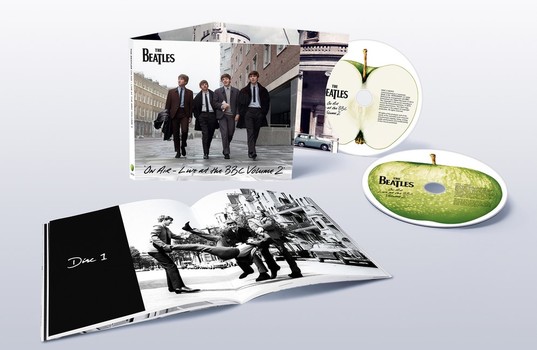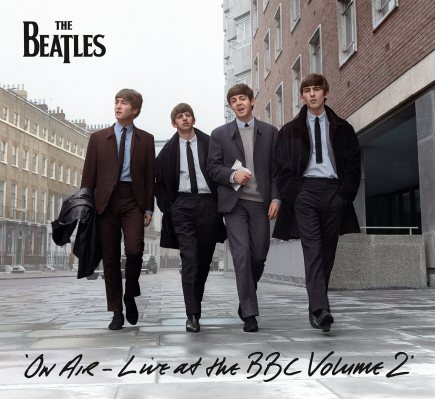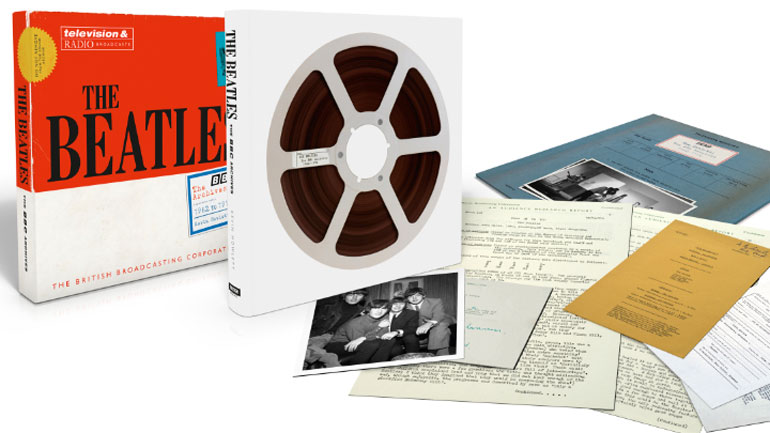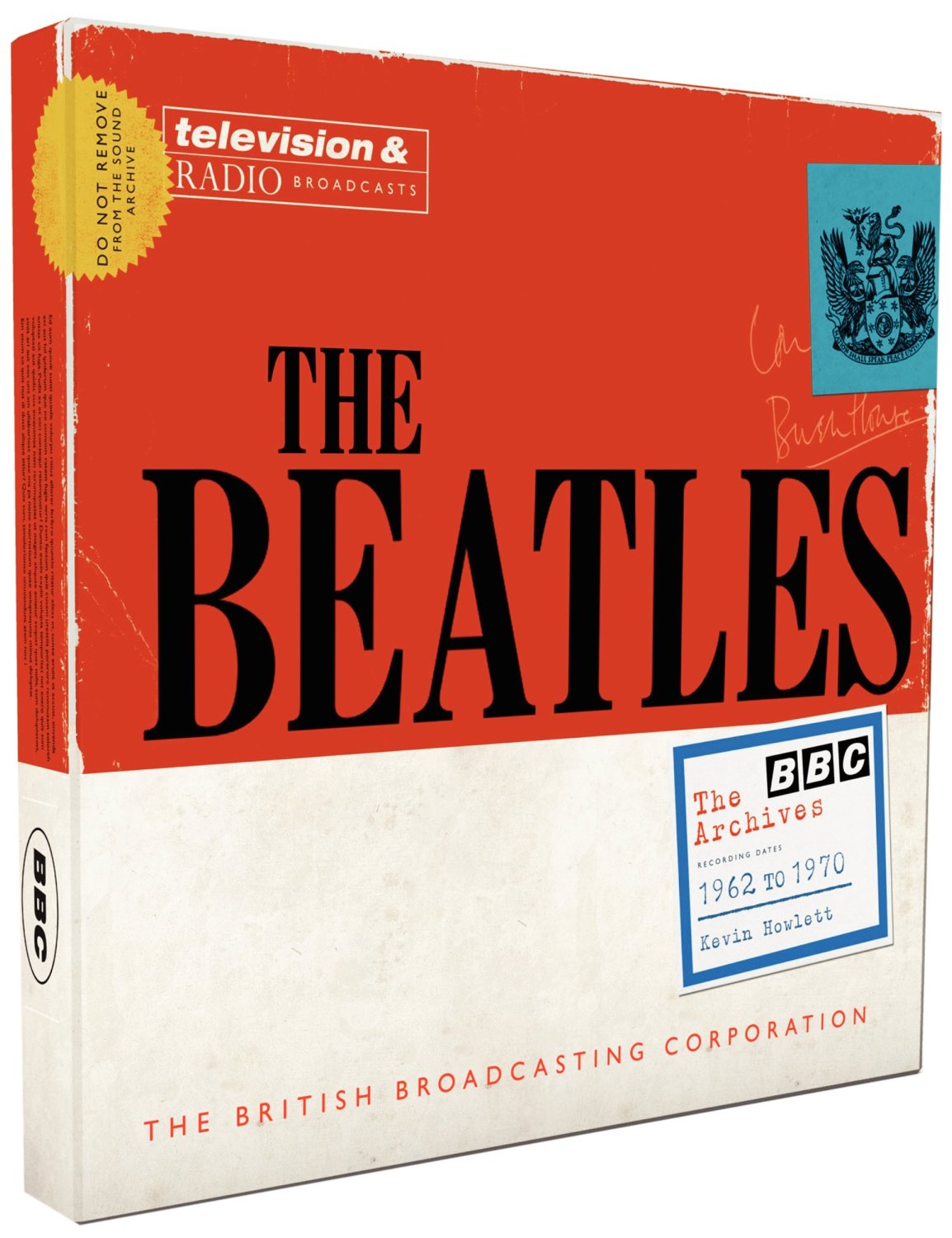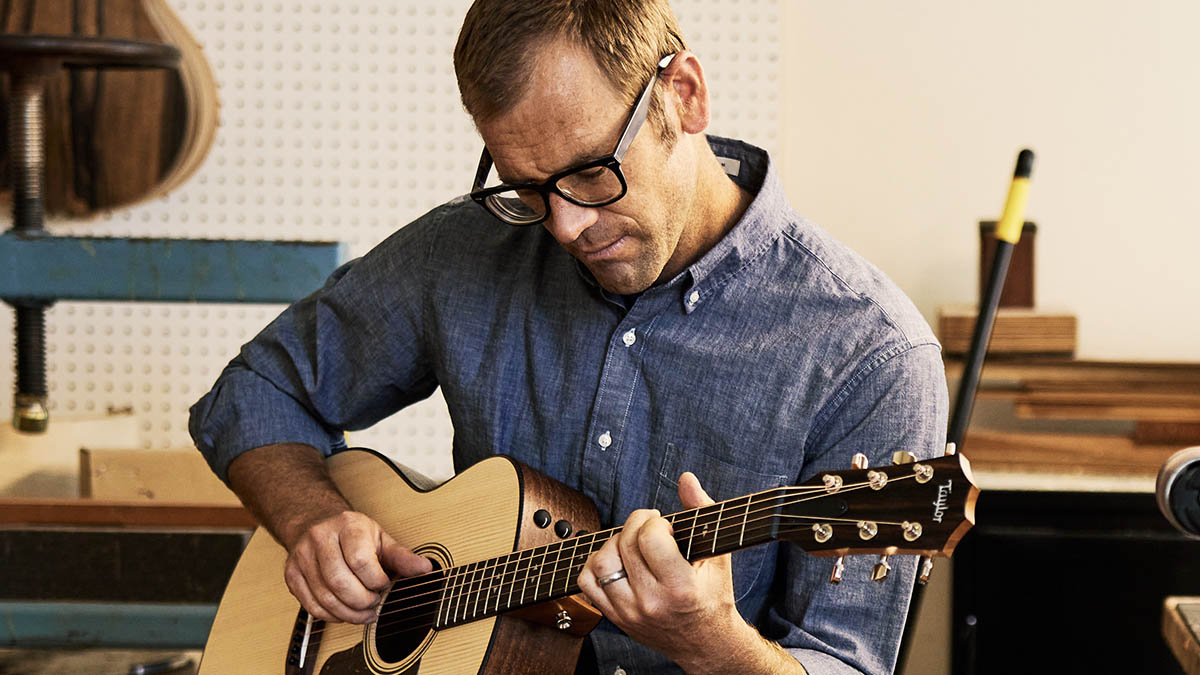The Beatles' BBC Years Explored in Three Exciting New Releases
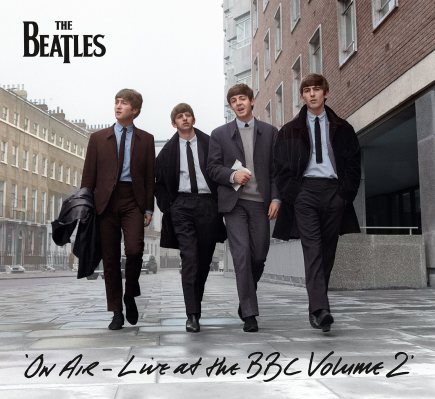
In interviews conducted before he was killed in 1980, John Lennon noted his love for the Beatles’ early recordings for BBC radio.
“We did a lot of tracks that were never on record for [the BBC, and] they were well recorded, too,” Lennon said.
In fact, Lennon’s former personal assistant told me that Lennon was an avid collector of bootlegs of his former band, and that he especially loved those featuring the many radio appearances the Fabs made between 1962 and 1965.
If you’re not Beatles-obsessed, you’re likely scratching your head at all the hubbub. You might have been one of the more than 8 million people who bought 1994's Live at the BBC and enjoyed the loose, playful nature of the Beatles on the album and the load of tracks the band never recorded for their conventional releases.
But really, Live at the BBC was just the tip of the iceberg.
Bootlegs of the Beatles’ BBC radio shows began appearing in 1971 and only accelerated in the 1980s after several BBC documentaries (syndicated in the US) and the advent of the CD. Now one of the men who was key to bringing those recordings to us has authored a book, and the Beatles are releasing a second volume of BBC recordings.
On Air — Live at the BBC, Volume 2 (plus a remastered Live at the BBC) and co-producer Kevin Howlett’s just-released book, The Beatles: The BBC Archives: 1962-1970, will transport you back to early '60s England. The music is transcendent and the book is now the place for anyone interested in this almost-lost story that was so key to the Beatles’ rise to fame.
All the latest guitar news, interviews, lessons, reviews, deals and more, direct to your inbox!
While Live at the BBC, Volume 2 isn’t better than its 1994 counterpart, Live at the BBC, the sound is much improved, and it’s a more cohesive affair, emulating a radio broadcast with lots of chat and a natural ebb and flow to the music.
“I like all the bits of talking,” Howlett told me recently. “You can, of course, always skip them, but I love how warm and funny the Beatles are. You have to imagine how awfully stuffy the BBC was in the early 1960s. They were beyond irreverent. It was a bit shocking to many people at the time, to be honest. Not necessarily in a bad way, but they were definitely different. It wasn’t only their music that got young peoples’ attention. So we tried to recreate that atmosphere.”
Even 50 years removed, the Beatles are still unlike any artists that came before or after. As you listen to Volume 2, what’s most striking is how effortlessly confident they are. And boy, were they a damn good band. These aren’t the pristine recordings the band laid down in Studio 2 of Abbey Road. These are recordings of a supremely tight band rocking out literally in between personal appearances, concerts and making films.
Between March 1962 and June 1965, the BBC broadcast 275 musical performances by the Beatles recorded especially for "the Beeb." The group played 88 distinct songs in those sessions; some recorded many times, while others were performed only once. They played songs on 39 radio shows in 1963 alone. On their busiest BBC day, July 16, 1963, the Beatles recorded 18 songs for three editions of their Pop Go The Beatles series in less than seven hours.
“That’s an astounding amount of output, especially considering how busy and frankly overwhelmed they probably were,” Howlett said. “But once they were in the studio they were all business. I’ve been working on these recordings for over 30 years and I never get tired of them.”
For anyone familiar with the near-complete Great Dane or Purple Chick compilations of the Beatles’ BBC material, you’ll know EMI/UME weren’t scraping the bottom of the barrel in putting this set together. In fact, when Howlett and I spoke, we agreed there really isn’t a bad track (technical issues aside) in the whole lot of BBC performances, and certainly not on either released BBC set.
Although there are some allowances for less-than perfect quality for tracks like Chuck Berry’s “I’m Talking About You” and the standard “Beautiful Dreamer," by and large, the tracks here are rich and full. There are countless highlights — superb renditions of “I Saw Her Standing There” and “Devil In Her Heart”; tight and energetic versions of “Ask Me Why,” “The Hippy Hippy Shake” and "You Can’t Do That”; and soulful, almost bluesy takes on “Please Mr. Postman,” “Sure To Fall (In Love With You),” “Memphis, Tennessee” and “This Boy." These recordings are the Beatles live, unadorned by studio trickery, and it’s a completely refreshing sound.
“EMI was always worried about too much bass, which might cause the needle of a record player to jump,” Howlett said. “But the BBC didn’t have to worry about that. So there’s a lot of bass and bass drum on these recordings. It really does sound much more to me like it might have being in the room and watching the Beatles perform.”
Readers also will be excited to hear that Howlett and co-producer Mike Heatley not only started from scratch in compiling Volume 2, but they did so as well in compiling the tracks for the remastered first volume.
“In 1994, one day a cab pulled up and we just loaded it full of our BBC tapes and they were taken away for George Martin to compile Volume 1,” Howlett said. “And rightly so, of course. But it’s been almost 20 years since that set was put together, and not only have we found many, many better quality versions of those songs, but the technology used to put the albums together has vastly improved.”
So keen listeners will notice a few more bits of dialogue here and there, and clean starts and better versions of some songs, like “Things We Said Today,” on Volume 1.
Howlett’s book, too, is a treasure trove of pictures, transcripts and stories about the Beatles’ close relationship with the BBC, right up until the time the group disbanded. From the BBC producer who took a chance on the then-unknown band in 1962 (noting that Lennon was up to snuff as a singer but that Paul McCartney was, remarkably, not), through the seminal night in 1963 when the Beatles took over Saturday-evening television in England with a concert on the BBC’s Juke Box Jury, right up to George Harrison’s last interview with the Beeb as a Beatle in 1970, just days before McCartney announced he was quitting the band, where he imagines a relatively rosy future for the group, it’s all there.
The Beatles: The BBC Archives: 1962-1970 will provide even the most avid fan with loads of new information, and the packaging, designed to look like an old BBC reel-to-reel tape box, is first class. The BBC Archives is a worthy addition to the never-ending pile of books about the Beatles, and close readers might even find some clues to the real culprit in the band’s breakup if.
Perhaps one day the BBC’s entire archive of Beatles material will see the light of day. Until then, we now have four officially released CDs and one remarkable and beautifully produced book to add to our essential Beatles lists.
Jeff Slate is a NYC-based solo singer-songwriter and music journalist. He founded and fronted the band the Badge for 15 years beginning in 1997 and has worked with Pete Townshend, Earl Slick, Carlos Alomar, Steve Holley, Laurence Juber and countless others. He has interviewed and written about everyone from the Beatles and Kiss to Monty Python and rock musicals on Broadway. He is an avid collector of rock and roll books and bootlegs and has an encyclopedic knowledge of all things Dylan and the Beatles. For more information, visit jeffslate.net.
